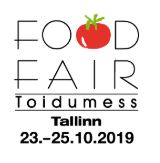Russia will suspend supplies of pome and stone fruits from China starting August 10 due to cases of contaminated products’ deliveries.
A representative of the country’s veterinary and phytosanitary watchdog (Rosselkhodnadzor) told reporters on Wednesday the ban will be extended on plums, nectarines, apricots, peaches, cherry plums, cherries, sweet cherries, apples, pears, and queen apples.
“The federal veterinary and phytosanitary service is forced to suspend the supplies of pome and stone fruits from China to Russia starting August 10, 2019. The decision has been taken due to continuing cases of China-originating products contaminated with dangerous quarantine for Russia objects supplied to the country,” the regulator explained.
The watchdog plans to hold consultations with the Chinese side and inspect the places of production, storage and packing of those products, which will be followed by consideration of trade resumption.
According to the Rosselkhoznadzor, over 900,000 MT of fruits and vegetables are imported to Russia from China annually: 180,000 MT of citrus, more than 190,000 MT of apples, pears, plums, nectarines, apricots, peaches, more than 80,000 MT of tomatoes, about 53,000 MT of potatoes, as well as 100,000 MT of onions and garlic.
In May, Rosselkhoznadzor lifted an import ban on stone fruit from North Macedonia and Serbia, imposed in August 2018. Some fruit from the two countries was banned after the watchdog said it had found the Monilinia fructicola fungus in Serbian peaches and apricots and in batches of fruit from North Macedonia.
www.russiabusinesstoday.com, www.rbc.ru

 Tallinn Food Fair
Tallinn Food Fair
 Riga Food
Riga Food